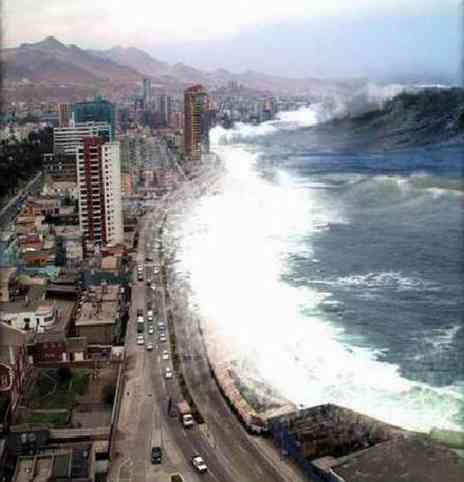
Global warming could transform Amazon into savanna in 100 years,
The Associated Press
Friday, December 29, 2006
Global warming could spell the end of the world's largest remaining tropical rain forest, transforming the Amazon into a grassy savanna before end of the century, researchers said Friday.
Jose Antonio Marengo, a meteorologist with
"We are working with two scenarios: a worst case and a second, more optimistic one," he said in a telephone interview with The Associated Press.
"The worst case scenario sees temperatures rise by 5 to 8 degrees (Celsius) until 2100, while rainfall will decrease between 15 and 20 percent. This setting will transform the Amazon rain forest into a savanna-like landscape," Marengo said.
That scenario supposes no major steps are taken toward halting global warming and that deforestation continues at its current rate, Marengo said.
The more optimistic scenario supposes governments take more aggressive actions to halt global warming. It would still have temperatures rising in the Amazon region by 3 to 5 degrees Celsius and rainfall dropping by 5 to 15 percent, Marengo said.
"If pollution is controlled and deforestation reduced, the temperature would rise by about 5 degrees Celsius in 2100," said Marengo. "Within this scenario, the rain forest will not come to the point of total collapse."
Marengo's finding were part an 800,000 real (US$373,000; €284,000) study that began two years ago and that will continue until 2010. The study, financed by the World Bank and the British government, seeks to project climatic changes that will effect
Sprawling over 4.1 million square kilometers (1.6 million square miles), the Amazon covers nearly 60 percent of
Marengo said he was optimistic that the worst-case scenario could be averted, but he said that would require a major effort by industrialized nations to reduce emissions of so-called greenhouse gases that contribute to global warming.
He said
Destroying trees through burning contributes to global warming, releasing about 370 million tons of greenhouse gases into the atmosphere every year — about 5 percent of the world total — scientists say.
About 20 percent of the rain forest has already been cut down and while the rate of destruction has slowed in recent years, environmentalists say it remains alarmingly high.

No comments:
Post a Comment